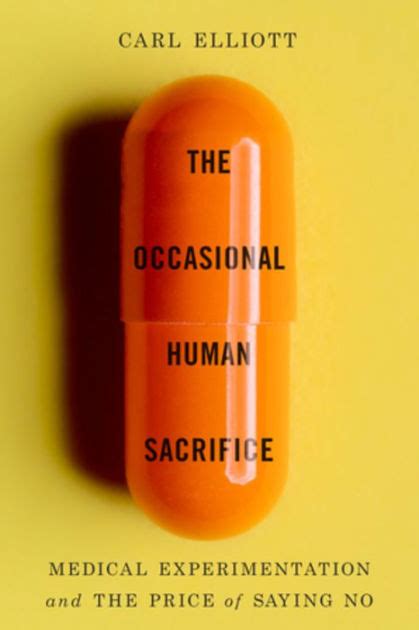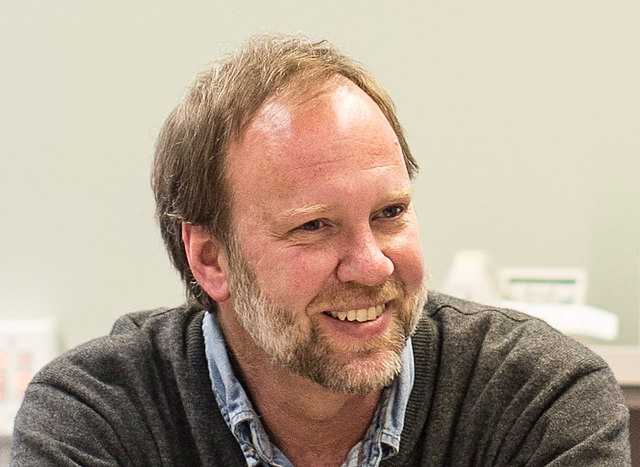
Reviewed by Brian Martin
Published in The Whistle (Newsletter of Whistleblowers Australia), No. 120, October 2024, pp. 4-5
This is one of the best books on whistleblowing I’ve read, and I’ve read a lot of them.

The author, Carl Elliott, was a whistleblower, but not a typical one. He wasn’t an insider with direct access to damaging information. He was, and is, an academic at the University of Minnesota, working in bioethics, which addresses ethical matters in biology, medicine and public health.
As he tells his story, he emphasises that he’s neither heroic nor especially sensitive to transgressions in medicine. During his own medical training, he did what his teachers instructed, for example giving a pelvic exam to an unconscious woman, though she had never given permission for students to do this.
Elliott had read about medical abuses elsewhere but never felt a special obligation to do anything about them. But when he read about the suicide of a man who was the subject of a medical experiment at his own university, he became impassioned to get to the bottom of the story and to hold the implicated researchers and university officials to account.
You may already know the outcome, but it’s worth briefly mentioning the process, which is so familiar to whistleblowers. Elliott delved into the issue, gathering information, and wrote letters to all sorts of officials at the university and outside agencies. He organised protests. He won a few allies, but most turned against him. He lost friends.
Elliott, in telling his story, looks back on his campaigning with a sense of wonder and dismay. Was he really obsessed? Did he really do all those things that made others think he was deranged? Was it worth it?
“No matter how hard I tried, I couldn’t focus my attention on anything other than the Markingson case. Nothing was as important as what to do next: how to get the press involved, how to pry more information from the university, how to mobilize public support, how to force the authorities to investigate. The sheer number of hours I wasted on efforts that would ultimately prove useless is staggering. I even understood this at the time, but still I couldn’t stop, because nothing seemed to work and giving up was unthinkable.” (pp. 13–14)
After years of effort, Elliott was vindicated. An independent inquiry found against the university and the researchers. Few whistleblowers achieve anything like this, but Elliott felt little sense of triumph. No one in authority apologised. The university continued as before, with no fundamental change.
Elliott, unlike most whistleblowers, used his experience to study whistleblowing more generally. In the following years, he investigated six major medical scandals, ones involving researchers doing dodgy experiments — dodgy in the sense of being unethical and harmful. He focused on the whistleblowers, the individuals who tried to expose and stop the research and hold researchers and administrators accountable. In the US Tuskegee syphilis study, black men, diagnosed with syphilis, were not treated for decades, to see what would happen. In the New Zealand “great experiment,” women with cervical cancer in situ were not given standard treatment because a senior figure claimed the cancer wouldn’t progress. In the Swedish Karolinska Institute scandal, an acclaimed transplant surgeon was eventually exposed as a fraud.
Much of what Elliott discovered through his interviews with whistleblowers and others involved, and his deep study of documentation, is familiar to anyone who knows whistleblower stories. It takes enormous efforts to expose the problems; colleagues, senior administrators, and regulatory bodies are unresponsive; most whistleblowers are subject to reprisals; and a powerful tool for exposing the abuses is publicity, including media coverage. In one case, it took twenty years of effort to make a difference.
Elliott offers probing observations about the psychology of whistleblowers, noting how they are searching for some sort of justice that almost never is achieved. Even those medical-research whistleblowers who were most successful, who had been vindicated by formal inquiries, seemed, to Elliott, to be dissatisfied.
Whistleblowing can cause disillusionment. Prior belief in the good intentions of most people is replaced with cynicism, and this personal transformation is distressing. Elliott draws on research by C. Fred Alford, whose book Whistleblowers: Broken Lives and Organizational Power is an incisive study of the effect of whistleblowing on beliefs about the world.
To understand what drives whistleblowers, Elliott finds the concept of honour useful. Some universities expect students to adhere to an honour code, which typically includes a pledge both not to cheat and to report those who do. The psychology of honour is personally taking on responsibility when others violate the code. Elliott finds that medical-research whistleblowers are not impelled by professional ethics or human rights, but rather by conscience and self-respect: it is most of all about how they feel about themselves.
“Most whistleblowers are accidental dissenters, not revolutionaries. They never planned to lead a protest movement. Most of them simply reached a point where they could either speak out or betray something fundamental about themselves, and so they spoke out.” (p. 301)
Elliott also explores the behaviour and psychology of perpetrators and bystanders. Few of those responsible for horrendous medical experiments, involving lack of consent and causing death, ever apologise. As well, administrators in the research institutions where these abuses occurred, who spent years either defending the aberrant research or refusing to take any action in response to complaints, are seldom apologetic. Elliott muses about the management of his own institution, the University of Minnesota, years after his concerns were formally backed. Many administrators simply move on, new ones taking their place, and soon there is no institutional memory of any problem.
One case especially interested me: the whistleblower was a member of an institutional review board (IRB), what in Australia would be called a research ethics committee. The members of a research organisation’s IRB must approve protocols for research on animals and humans; they are supposed to be the ones to ensure ethical research. You might imagine that IRBs would be the front-line defence against abuses, but alas not. Aside from the one case he described, Elliott has never heard of another. The huge bureaucratic apparatus of IRBs gives the appearance of providing protection but with little substance.
“The smoke screens have gotten thicker; the codes and regulations have grown ever more elaborate; and the methods of exploitation have evolved, like an exotic organism adapting to a new ecosystem. Today’s system of protecting human subjects is a bureaucracy straight out of Kafka …” (p. 189)
This reminded me of whistleblower protection legislation, though Elliott doesn’t mention it.
A striking feature of medical experimentation abuses is the complicity or silence of nearly everyone involved. Elliott tries to explain this. One of his prime sources of insight is Robert Jackall’s book Moral Mazes: The World of Corporate Managers. It’s an old book, published in 1989, but still the best available to describe the pressures to conform within bureaucratic environments, including the way managers respond to whistleblowers. I read Jackall’s book decades ago and wrote about its relevance. Most of the attention to whistleblowing is on whistleblowers; arguably, there should be much more attention to non-whistleblowers. Elliott’s treatment offers a nice balance.

Carl Elliott
What sets The Occasional Human Sacrifice apart is the combination of first-hand experience and in-depth study of other cases, all told in an engaging way that combines the personal and the professional aspects of the cases. If you are asked to participate in a medical trial, the lesson might be to take care, because not all medical research is run as ethically as it should be. But how are you to know if the research is dodgy, if you aren’t properly informed? That’s where whistleblowers come in — and the enormous obstacles they face in exposing abuse.
Brian Martin is editor of The Whistle.
Brian Martin's publications on suppression of dissent